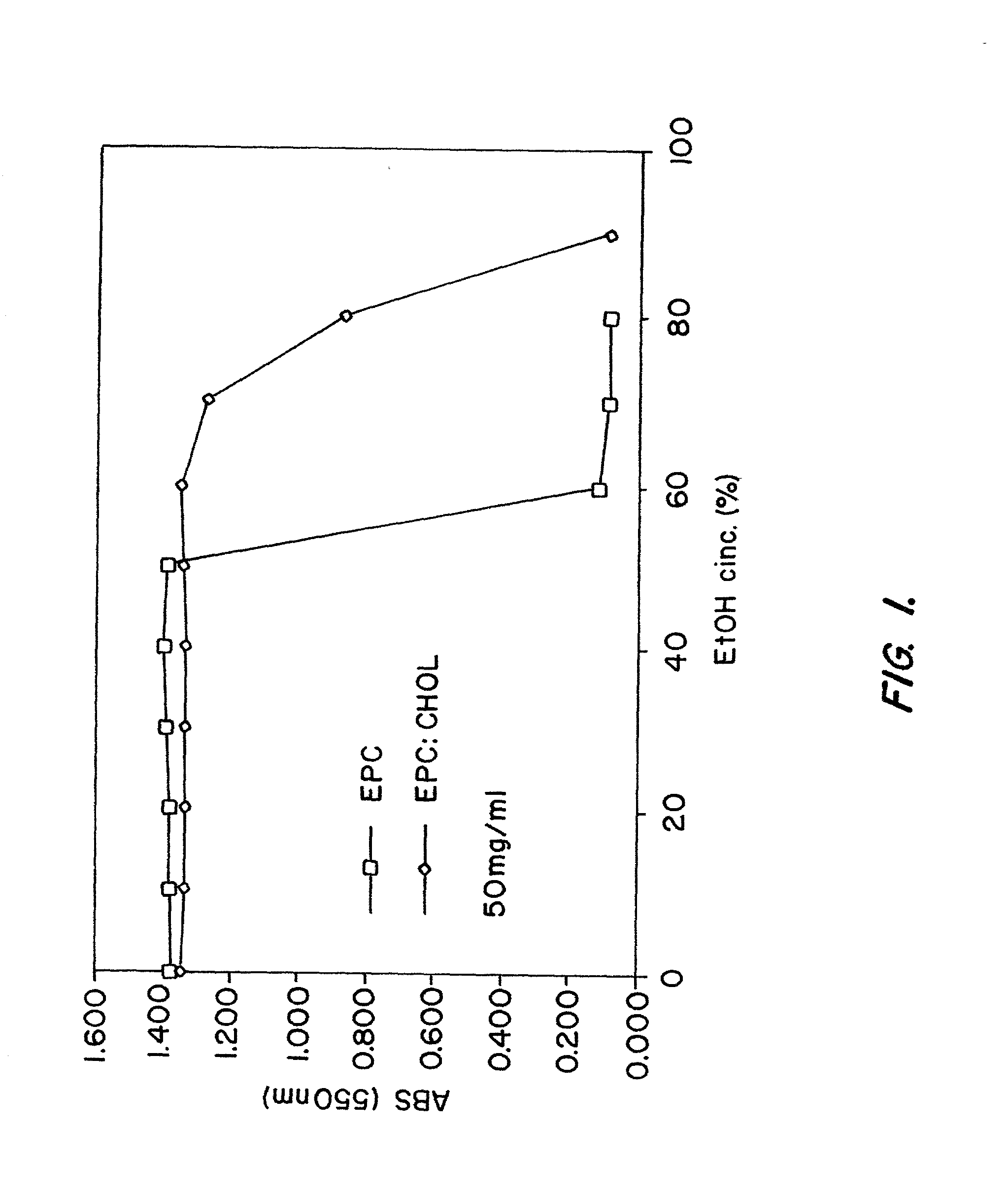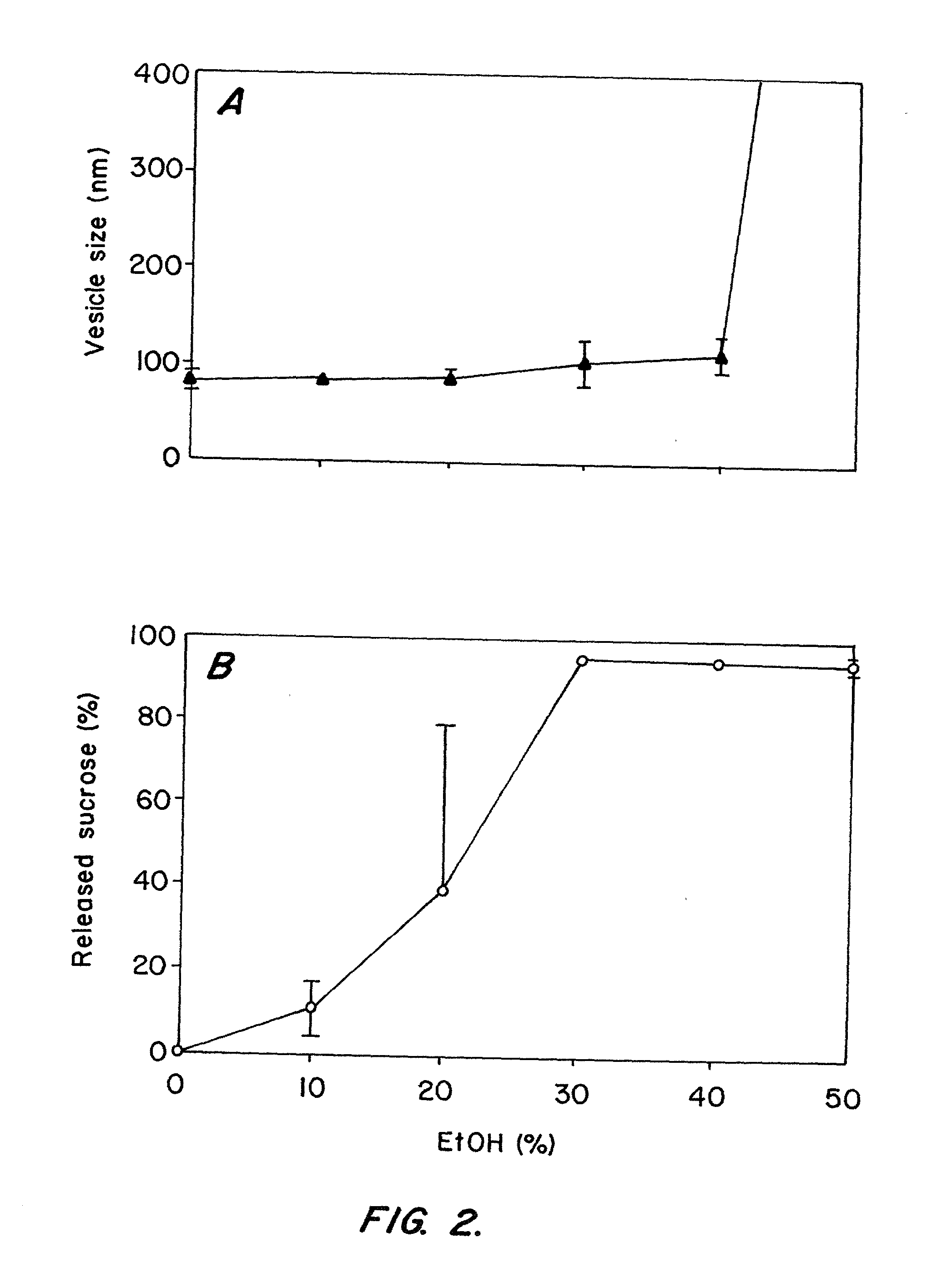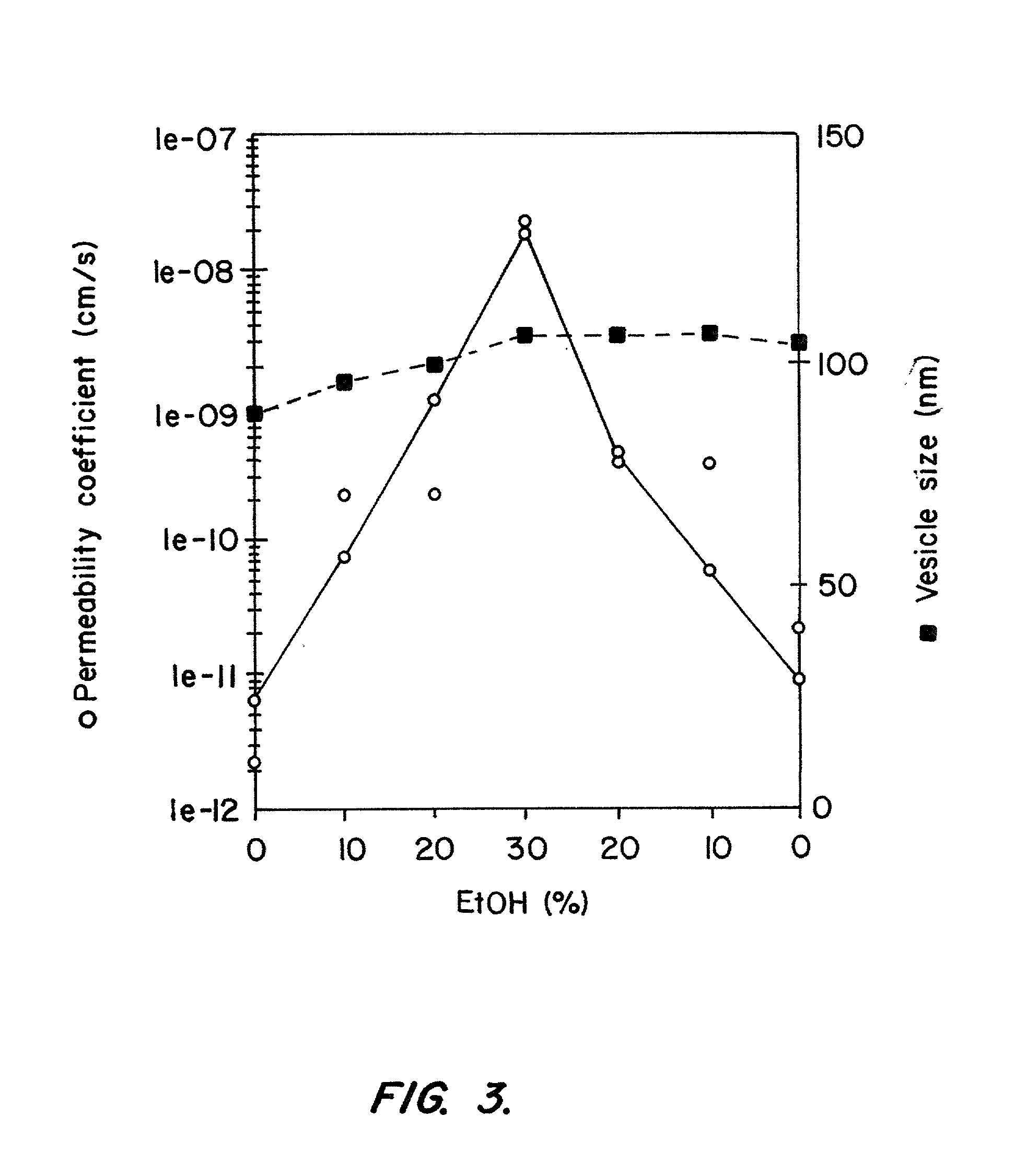Method of loading preformed liposomes using ethanol
a technology of preformed liposomes and ethanol, which is applied in the direction of liposomal delivery, medical preparations, pharmaceutical delivery mechanisms, etc., can solve the problems of reduced effective concentration of free solutes, low efficiency of loading solutes (such as drugs) into preformed vesicles, and process not of practical us
- Summary
- Abstract
- Description
- Claims
- Application Information
AI Technical Summary
Benefits of technology
Problems solved by technology
Method used
Image
Examples
Embodiment Construction
[0065] Abbreviations
[0066] QELS--Quasielastic light scattering
[0067] MATERIALS AND METHODS
[0068] Lipids and Chemicals
[0069] Egg phosphatidylcholine (EPC) was obtained from Nichiyu Liposome (Tokyo, Japan). Dipalmitoylphosphatidylcholine (DPPC) was purchased from Avanti Polar Lipid (Birmingham, Ala.). [.sup.14C]sucrose, (methoxy-.sup.3H]inulin and [.sup.3H]dextran were obtained from New England Nuclear (Mississauga, ON). All other chemicals were obtained from Sigma (St. Louis, Mo.) and were of analytical grade.
[0070] Vesicle Preparation
[0071] Lipid films were made by drying chloroform solutions of lipids under a stream of nitrogen followed by exposure to high vacuum for approximately 2 h. Large multilamellar vesicles (MLV) were prepared by hydrating (vortex mixing) the dry lipid film in 150 mM NaCl, 20 mM Hepes (pH 7.0). EPC and EPC / cholesterol (55:45 mol ratio) were hydrated at 50.degree. C. Lipid concentrations of 50 mg / H were routinely employed. The MLV were frozen in liquid nitrog...
PUM
 Login to View More
Login to View More Abstract
Description
Claims
Application Information
 Login to View More
Login to View More - R&D
- Intellectual Property
- Life Sciences
- Materials
- Tech Scout
- Unparalleled Data Quality
- Higher Quality Content
- 60% Fewer Hallucinations
Browse by: Latest US Patents, China's latest patents, Technical Efficacy Thesaurus, Application Domain, Technology Topic, Popular Technical Reports.
© 2025 PatSnap. All rights reserved.Legal|Privacy policy|Modern Slavery Act Transparency Statement|Sitemap|About US| Contact US: help@patsnap.com



